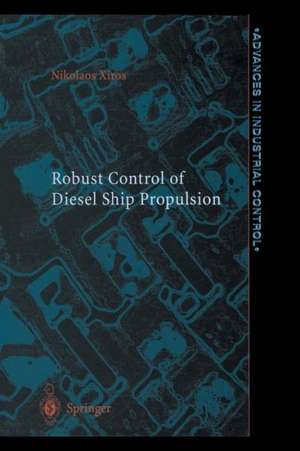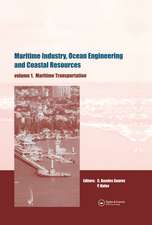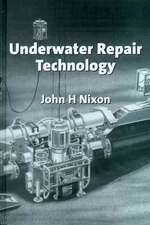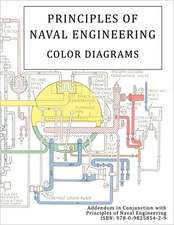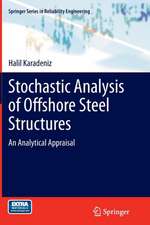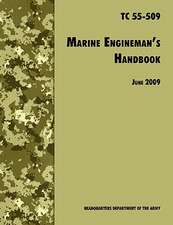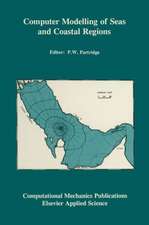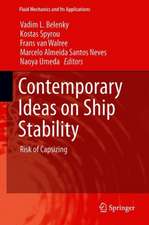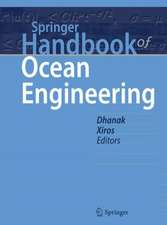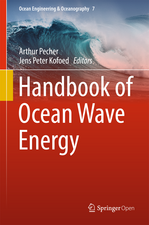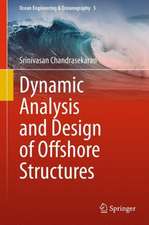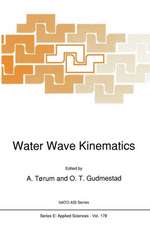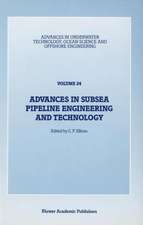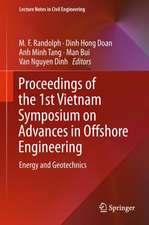Robust Control of Diesel Ship Propulsion: Advances in Industrial Control
Autor Nikolaos Xirosen Limba Engleză Paperback – 14 sep 2012
| Toate formatele și edițiile | Preț | Express |
|---|---|---|
| Paperback (1) | 941.82 lei 6-8 săpt. | |
| SPRINGER LONDON – 14 sep 2012 | 941.82 lei 6-8 săpt. | |
| Hardback (1) | 947.67 lei 6-8 săpt. | |
| SPRINGER LONDON – 14 iun 2002 | 947.67 lei 6-8 săpt. |
Din seria Advances in Industrial Control
- 15%
 Preț: 643.34 lei
Preț: 643.34 lei - 23%
 Preț: 582.63 lei
Preț: 582.63 lei - 18%
 Preț: 783.98 lei
Preț: 783.98 lei - 18%
 Preț: 947.35 lei
Preț: 947.35 lei - 20%
 Preț: 568.24 lei
Preț: 568.24 lei - 15%
 Preț: 643.16 lei
Preț: 643.16 lei - 18%
 Preț: 899.21 lei
Preț: 899.21 lei - 18%
 Preț: 891.33 lei
Preț: 891.33 lei - 18%
 Preț: 740.57 lei
Preț: 740.57 lei - 18%
 Preț: 961.23 lei
Preț: 961.23 lei - 18%
 Preț: 955.08 lei
Preț: 955.08 lei - 15%
 Preț: 645.28 lei
Preț: 645.28 lei - 15%
 Preț: 638.43 lei
Preț: 638.43 lei - 18%
 Preț: 901.11 lei
Preț: 901.11 lei - 18%
 Preț: 1410.94 lei
Preț: 1410.94 lei - 18%
 Preț: 728.91 lei
Preț: 728.91 lei - 20%
 Preț: 1003.78 lei
Preț: 1003.78 lei - 18%
 Preț: 947.35 lei
Preț: 947.35 lei - 15%
 Preț: 643.34 lei
Preț: 643.34 lei - 15%
 Preț: 654.30 lei
Preț: 654.30 lei - 18%
 Preț: 950.52 lei
Preț: 950.52 lei - 15%
 Preț: 644.30 lei
Preț: 644.30 lei - 18%
 Preț: 1393.09 lei
Preț: 1393.09 lei - 18%
 Preț: 950.21 lei
Preț: 950.21 lei - 18%
 Preț: 949.90 lei
Preț: 949.90 lei - 18%
 Preț: 949.42 lei
Preț: 949.42 lei - 18%
 Preț: 950.52 lei
Preț: 950.52 lei - 18%
 Preț: 1113.71 lei
Preț: 1113.71 lei - 15%
 Preț: 650.04 lei
Preț: 650.04 lei - 15%
 Preț: 644.95 lei
Preț: 644.95 lei - 18%
 Preț: 950.33 lei
Preț: 950.33 lei - 18%
 Preț: 948.61 lei
Preț: 948.61 lei - 18%
 Preț: 1112.60 lei
Preț: 1112.60 lei - 15%
 Preț: 644.63 lei
Preț: 644.63 lei - 18%
 Preț: 953.20 lei
Preț: 953.20 lei - 18%
 Preț: 945.62 lei
Preț: 945.62 lei - 15%
 Preț: 640.88 lei
Preț: 640.88 lei - 15%
 Preț: 640.88 lei
Preț: 640.88 lei - 20%
 Preț: 650.92 lei
Preț: 650.92 lei - 18%
 Preț: 1112.60 lei
Preț: 1112.60 lei - 20%
 Preț: 998.36 lei
Preț: 998.36 lei - 15%
 Preț: 643.34 lei
Preț: 643.34 lei - 18%
 Preț: 948.92 lei
Preț: 948.92 lei - 18%
 Preț: 1381.43 lei
Preț: 1381.43 lei - 15%
 Preț: 651.51 lei
Preț: 651.51 lei - 15%
 Preț: 647.08 lei
Preț: 647.08 lei - 20%
 Preț: 563.66 lei
Preț: 563.66 lei - 18%
 Preț: 992.64 lei
Preț: 992.64 lei - 18%
 Preț: 1225.79 lei
Preț: 1225.79 lei
Preț: 941.82 lei
Preț vechi: 1148.56 lei
-18% Nou
Puncte Express: 1413
Preț estimativ în valută:
180.22€ • 192.71$ • 150.26£
180.22€ • 192.71$ • 150.26£
Carte tipărită la comandă
Livrare economică 17 aprilie-01 mai
Preluare comenzi: 021 569.72.76
Specificații
ISBN-13: 9781447111023
ISBN-10: 1447111028
Pagini: 236
Ilustrații: XV, 214 p.
Dimensiuni: 155 x 235 x 12 mm
Greutate: 0.34 kg
Ediția:Softcover reprint of the original 1st ed. 2002
Editura: SPRINGER LONDON
Colecția Springer
Seria Advances in Industrial Control
Locul publicării:London, United Kingdom
ISBN-10: 1447111028
Pagini: 236
Ilustrații: XV, 214 p.
Dimensiuni: 155 x 235 x 12 mm
Greutate: 0.34 kg
Ediția:Softcover reprint of the original 1st ed. 2002
Editura: SPRINGER LONDON
Colecția Springer
Seria Advances in Industrial Control
Locul publicării:London, United Kingdom
Public țintă
ResearchCuprins
1 Introduction.- 1.1 The Marine Diesel Propulsion System.- 1.2 Contribution of this Work.- 2 Marine Engine Thermodynamies.- 2.1 Physical Engine Modelling.- 2.2 Turbocharged Engine Model Variables.- 2.3 Turbocharged Engine Dynamical Equations.- 2.4 Turbocharged Engine Algebraic Equations.- 2.5 Cycle-mean Model Summary and Solution Procedure.- 2.6 Summary.- 3 Marine Plant Empirical Transfer Function.- 3.1 Black-box Engine Modelling.- 3.2 Shafting System Dynamical Analysis.- 3.3 The Plant Transfer Function.- 3.4 Summary.- 4 Robust PID Control of the Marine Plant.- 4.1 Introduction.- 4.2 Application Aspects of Marine Engine Goveming.- 4.3 PID H-infinity Loop Shaping.- 4.4 PI and PID H-infinity Regulation of Shaft RPM.- 4.5 D-term Implementation Using Shaft Torque Feedback.- 4.6 Summary.- 5 State-space Description of the Marine Plant.- 5.1 Introduction.- 5.2 The Neural Torque Approximators.- 5.3 State Equations of the Marine Plant.- 5.4 State-space Decomposition and Uncertainty.- 5.5 Transfer Function Matrix of the Marine Plant.- 5.6 Summary.- 6 Marine Plant Robust State-feedback Control.- 6.1 Introduction.- 6.2 Supervisory Setpoint Control of the Marine Plant.- 6.3 Full-state-feedback Control of the Marine Plant.- 6.4 State-feedback and Integral Control of the Marine Plant.- 6.5 Summary.- 7 Closure.- 7.1 Conclusions and Discussion.- 7.2 Subjects for Future Investigations and Research.- Appendix A Non-linear Aigebraic Systems of Equations.- Appendix B Second-order Transfer Function with Zero.- References.
Textul de pe ultima copertă
The control of marine engines and propulsion plants is a field of increasing interest to the maritime industry. The author's participation in a number of closely related research projects together with practical shipboard experience allows Robust Control of Diesel Ship Propulsion to present a broad view of the needs and problems of the shipping industry in this area.
The book covers a number of models and control types: An integrated nonlinear state-space model of the marine propulsion system is developed. This is based upon physical principles that incorporate uncertainties due to engine thermodynamics and disturbances due to propeller hydrodynamics. The model employs artificial neural nets for depicting the nonlinearities of the thermochemical processes of engine power/torque generation and the engine-turbocharger dynamical interaction; neural nets combine the required mathematical flexibility and formalism with numerical training and calibration options using either thermodynamic engine models or measured data series. The neural state-space model is decomposed appropriately to provide a linearised perturbation model suitable for controller synthesis.
The proportional integral (derivative) control law is examined under the perspective of shaft speed regulation for enhanced disturbance rejection of the propeller load. The typical marine shafting system dynamics and configuration allow for a smart implementation of the D-term based on shaft torque feedback.
Full-state feedback control is, examined for increased robustness of the compensated plant against parametric uncertainty and neglected dynamics. The H-infinity requirements on the closed-loop transfer matrix are appropriately decomposed to similar ones on scalar transfer functions, which give specifications which are easier to manipulate.
In effect, the methods are comparatively assessed and suggestions for extensions and practical applications are given. This synthetic approach to the propulsion plant control and operational problems should prove useful for both theoreticians and practitioners, and can be easily adopted for the control of other processes or systems outside the marine field, as well.
The book covers a number of models and control types: An integrated nonlinear state-space model of the marine propulsion system is developed. This is based upon physical principles that incorporate uncertainties due to engine thermodynamics and disturbances due to propeller hydrodynamics. The model employs artificial neural nets for depicting the nonlinearities of the thermochemical processes of engine power/torque generation and the engine-turbocharger dynamical interaction; neural nets combine the required mathematical flexibility and formalism with numerical training and calibration options using either thermodynamic engine models or measured data series. The neural state-space model is decomposed appropriately to provide a linearised perturbation model suitable for controller synthesis.
The proportional integral (derivative) control law is examined under the perspective of shaft speed regulation for enhanced disturbance rejection of the propeller load. The typical marine shafting system dynamics and configuration allow for a smart implementation of the D-term based on shaft torque feedback.
Full-state feedback control is, examined for increased robustness of the compensated plant against parametric uncertainty and neglected dynamics. The H-infinity requirements on the closed-loop transfer matrix are appropriately decomposed to similar ones on scalar transfer functions, which give specifications which are easier to manipulate.
In effect, the methods are comparatively assessed and suggestions for extensions and practical applications are given. This synthetic approach to the propulsion plant control and operational problems should prove useful for both theoreticians and practitioners, and can be easily adopted for the control of other processes or systems outside the marine field, as well.
Caracteristici
Includes supplementary material: sn.pub/extras
